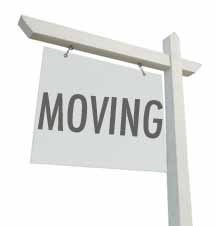 One of the questions I hear most often is, “Do I need to get new personal checks if any of the personal information printed on them is no longer current?
One of the questions I hear most often is, “Do I need to get new personal checks if any of the personal information printed on them is no longer current?
While it may not seem necessary to have to replace your checks because your address or other information has changed, you really should. It is certainly best for both you and the person you are writing the check to by having your current information on the check so they can more easily contact you. While some of the information is obviously more important than others we suggest getting new personal checks when you experience a legal name change, you move and always when there is any type of change within your bank or account information.
Name & Address Change
There are many reasons for people to change their names including marriage, divorce, or others . Regardless of the purpose, if you have gone through the process of legally changing your name then you should get checks with your new name on them. Most retailers will ask for identification when accepting a personal check and may question why the names do not match or there may be other issues should you need to cash a personal check.
The same basic premise applies to a change of address. In most states laws require you to change your address within 30-90 days on any government issued identification such as your driver’s license or state ID card. In addition to the retail issues you may encounter if you are writing checks to pay for your utilities like electric, gas or garbage collection you will want to have a current address on your checks so your account is more easily matched,should the checks get separated from the bill portion you send in.
Bank Changes
While not having updated personal information on your checks may cause confusion, not having updated or correct bank information introduces a different set of problems.
Printed down on the bottom of your checks is first your bank ABA routing number. This routing number is number is how your financial institution makes it possible for your financial transactions, whether they involve checks, direct deposits or automatic debits to go through smoothly.
There a few reasons your bank routing number may change including a merger with another bank, moving your accounts to a different branch of your institution or moving to another state. If your routing number changes it is important that you stop using and replace your current checks as quickly as possible. Using your old checks may cause them to be declined by the bank and then returned to the person or company that cashed them.
Returned checks used for retail purchases or to pay bills are usually subject to a returned check fee of as much as $35 to $50 for which the drawer is responsible. In addition your bank may also add similar charges to your account. In order to prevent the additional fees and the other possible problems resulting from having outdated or incorrect information on your checks, simply reorder checks with current information from companies such as Bradford Exchange Checks. This can save you money versus purchasing directly from your financial institution.
